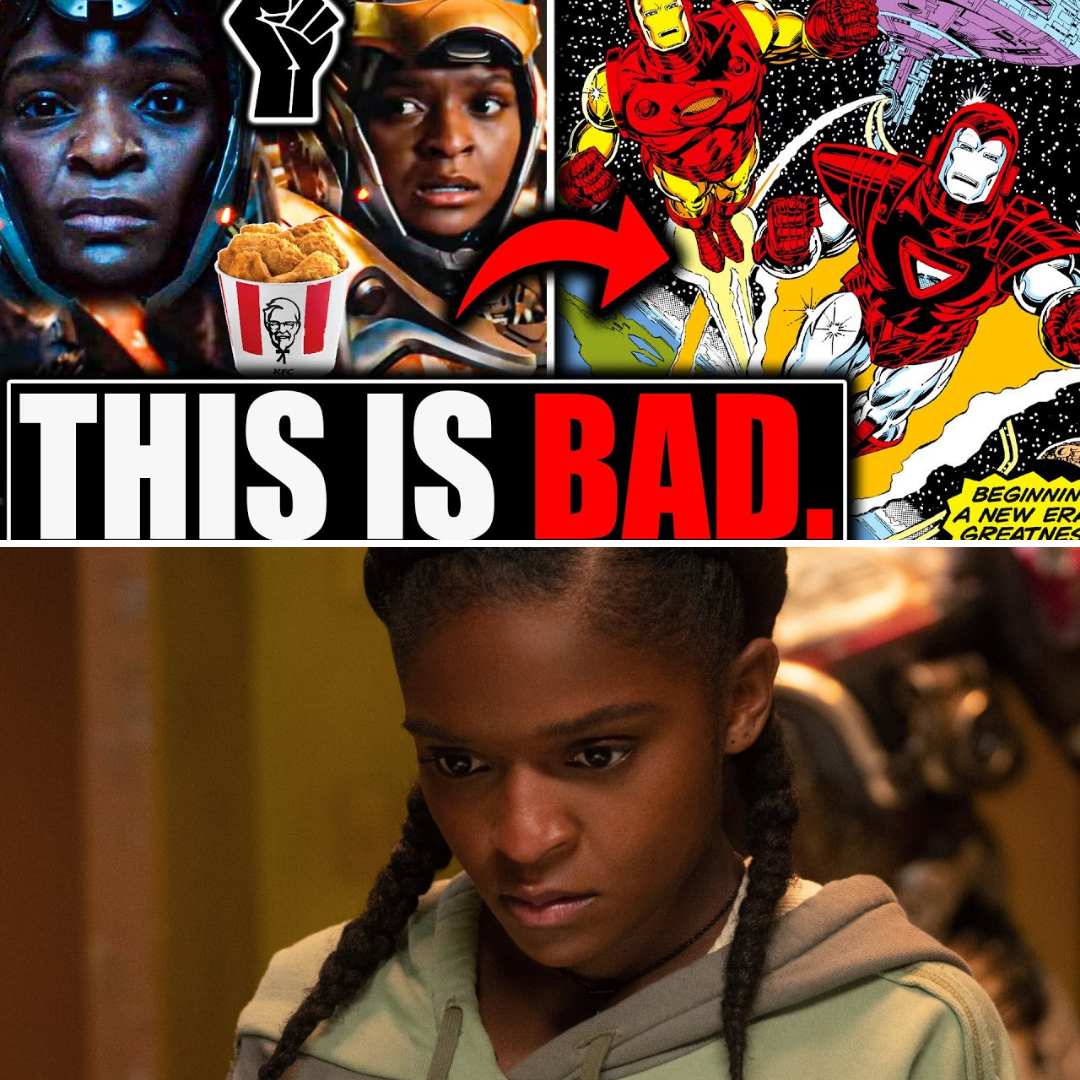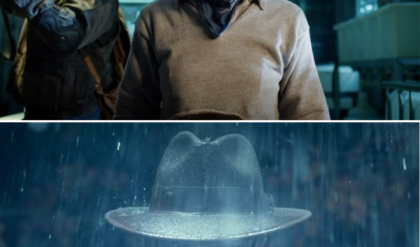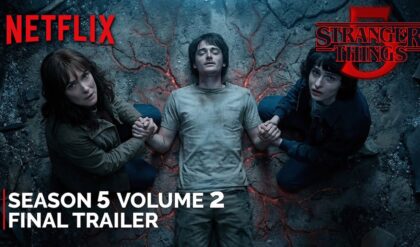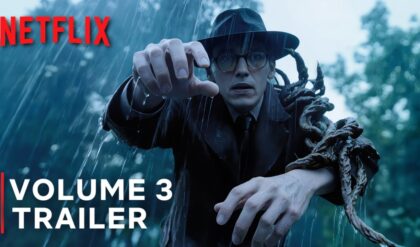Marvel’s New Avengers: Race Swaps After Ironheart Spark Debate
The Marvel Cinematic Universe (MCU) is poised for a transformative era with its upcoming slate of projects, including Avengers: Doomsday (May 1, 2026) and Avengers: Secret Wars (May 7, 2027). Following the introduction of Riri Williams, aka Ironheart, in Black Panther: Wakanda Forever (2022) and her Disney+ series premiering June 24, 2025, rumors are swirling that Marvel plans to introduce more race swaps in its new Avengers lineup. This shift has ignited passionate discussions among fans, with some celebrating the push for diversity and others criticizing it as a departure from comic book roots. What’s driving these changes, and how will they shape the future of Marvel’s premier superhero team? Let’s explore the context, the precedents, and the implications of this bold move.

Ironheart: A New Hero Sets the Stage
Riri Williams, portrayed by Dominique Thorne, is a genius MIT student who reverse-engineers Tony Stark’s Iron Man armor, becoming Ironheart. Introduced in Black Panther: Wakanda Forever, she crafted an advanced suit using Wakandan technology and joined forces with Shuri to battle Namor. Her Disney+ series, Ironheart, delves into her post-Wakanda journey, exploring her rivalry with the magical villain The Hood (Anthony Ramos) and her creation of an AI named N.A.T.A.L.I.E., inspired by the comics. The trailer emphasizes Riri’s quest to define her heroic identity, distinguishing her from Tony Stark by focusing on her ethics and purpose rather than just technological upgrades.
Riri’s debut marks a significant step in diversifying the MCU’s roster. Created by Brian Michael Bendis and Mike Deodato in Invincible Iron Man #7 (2016), Ironheart was inspired by actress Skai Jackson and designed as a Black female successor to Iron Man. Her prominence in the MCU, especially after Tony Stark’s death in Avengers: Endgame (2019), signals Marvel’s intent to elevate minority characters. The Ironheart series, with its focus on a young Black woman navigating technology and magic, has been praised for its fresh perspective, though some fans question whether her rapid rise overshadows established heroes. This sets the stage for the rumored race swaps in the new Avengers, as Marvel aims to reflect a broader demographic in its flagship team.
The Rumor: Race Swaps in the New Avengers
The buzz about race swaps in the new Avengers stems from fan discussions and industry leaks, particularly on platforms like X and sites like Cosmic Book News. Following Ironheart’s introduction, speculation has grown that Marvel will reimagine traditionally white characters with actors of color in upcoming Avengers films. While no official casting announcements have confirmed these changes, the precedent set by earlier MCU race swaps—such as Samuel L. Jackson as Nick Fury or Zendaya as MJ in Spider-Man: Homecoming—lends credibility to the rumors. Leaks from sources like WDW Pro suggest Marvel is actively planning to diversify its X-Men roster, and similar strategies may apply to the Avengers, especially in the multiverse-heavy Doomsday and Secret Wars.
The new Avengers team is expected to feature a mix of legacy heroes and newcomers. Confirmed characters include Sam Wilson as Captain America (Anthony Mackie), Doctor Strange (Benedict Cumberbatch), and potentially Robert Downey Jr. as a villainous Doctor Doom. Other likely members include Shang-Chi (Simu Liu), She-Hulk (Tatiana Maslany), and Captain Marvel (Brie Larson). Rumors point to younger heroes like Ms. Marvel (Iman Vellani) and Kate Bishop (Hailee Steinfeld) joining, alongside potential X-Men crossovers post-Deadpool & Wolverine. Within this ensemble, race swaps could involve recasting established characters or introducing alternate-universe variants with different ethnicities, leveraging the multiverse to justify changes.
For example, posts on X have speculated about characters like Hawkeye or Black Widow being reimagined with non-white actors in Secret Wars, which will reportedly feature multiversal variants. Others suggest new characters, like Wonder Man (Yahya Abdul-Mateen II), might take on roles traditionally held by white heroes, echoing Michael B. Jordan’s casting as Johnny Storm in 2015’s Fantastic Four. These moves align with Marvel’s broader push for inclusivity, as seen in projects like Ms. Marvel and Echo, but they’ve also sparked backlash from fans who feel the changes prioritize politics over fidelity to the source material.
The Precedent: Race Swapping in the MCU
Race swapping is not new to the MCU. Samuel L. Jackson’s Nick Fury, originally a white character in the 616 Marvel Universe, was reimagined as Black in the Ultimate Universe (2002), inspired by Jackson himself. This led to his casting in Iron Man (2008), a move widely praised for Jackson’s commanding performance. Similarly, Zendaya’s MJ in Spider-Man: Homecoming (2017) reinterpreted Mary Jane Watson’s role, with her character, Michelle Jones, becoming a fan favorite despite initial controversy. Other examples include Michael B. Jordan as Johnny Storm, Tilda Swinton as the Ancient One in Doctor Strange (2016), and Idris Elba as Heimdall in the Thor films.
These changes have had mixed receptions. Jackson and Elba were lauded for their charisma and fit, with few fans objecting to their race swaps. However, Jordan’s Johnny Storm faced criticism for altering the Fantastic Four’s family dynamic, and Swinton’s casting drew accusations of whitewashing, as the Ancient One was a Tibetan man in the comics. The debate often hinges on execution: when the actor’s performance enhances the character, fans tend to embrace the change, but when it feels forced or poorly justified, backlash ensues.
The MCU’s approach to race swapping reflects the comics’ own evolution. Many iconic heroes, created in the 1930s–1960s, were white due to the era’s cultural norms. As society diversified, Marvel introduced characters like Black Panther (1966), Luke Cage (1972), and Miles Morales (2011). The multiverse, a staple of Marvel comics, has also allowed for diverse variants, such as a Black Captain America (Isaiah Bradley) or a Hispanic Spider-Man (Miguel O’Hara). The MCU’s use of the multiverse in Loki and Spider-Man: No Way Home provides a narrative framework for race swaps, enabling characters to appear in new forms without erasing their original versions.
The Case for Race Swaps
Proponents of race swapping argue it’s a necessary step to address historical imbalances in superhero media. Comics from the Silver Age (1956–1970) were dominated by white male heroes, reflecting the industry’s demographics and societal biases. For instance, the original Avengers—Iron Man, Thor, Hulk, Ant-Man, and Wasp—were all white, with Black characters like Black Panther initially relegated to guest roles. Today’s audience, particularly younger viewers, is more diverse, and Marvel’s global box office relies on appealing to varied markets. Casting actors of color in prominent roles ensures representation, resonating with fans who rarely saw themselves in classic comics.
Race swapping also allows Marvel to tap into a wider talent pool. As noted in a 2018 LRM Online article, choosing the best actor for a role, regardless of race, can elevate a film’s quality. Idris Elba’s Heimdall, for example, brought gravitas to a supporting role, despite initial fan pushback. Moreover, race swaps can refresh familiar characters, offering new perspectives. Zendaya’s MJ, a sharp-witted outsider, contrasts with the comic’s redheaded model, yet her chemistry with Tom Holland’s Peter Parker revitalized the Spider-Man romance.
The multiverse further justifies these changes. Avengers: Secret Wars, based on the 2015 comic event, involves countless variants from different realities. This narrative device allows Marvel to introduce a Black Hawkeye or an Asian Black Widow without altering the Earth-616 canon, satisfying both diversity goals and purist fans. The success of Spider-Man: Into the Spider-Verse (2018), which centered Miles Morales, proves that diverse leads can drive critical and commercial hits, grossing $384 million worldwide and winning an Oscar.
The Backlash: A “Woke” Agenda?
Critics of race swapping argue it disrespects the source material and alienates longtime fans. Posts on X, like those from @cosmicbooknews, claim Marvel’s diversity push is a “woke” agenda that sacrifices storytelling for virtue signaling. They point to the 2015 Fantastic Four reboot, where Michael B. Jordan’s Johnny Storm failed to resonate, contributing to the film’s $168 million global gross against a $120 million budget. Similar sentiments surround rumors of X-Men race swaps, with leakers like WDW Pro alleging Disney prioritizes reducing white characters over fan expectations.
Some fans argue that race swapping undermines character integrity. For example, recasting a character like Clint Barton (Hawkeye) as non-white could disrupt his established backstory as a working-class archer, though the multiverse could mitigate this. Others, like Marvel writer Chuck Dixon in a 2022 Express interview, contend that race swapping deprives minority artists of original roles, suggesting it implies Black culture lacks its own stories. Dixon praised Denzel Washington’s The Equalizer but criticized swapping white characters as “demeaning.”
The backlash also reflects broader fatigue with Marvel’s post-Endgame direction. Films like Eternals (2021) and The Marvels (2023) faced criticism for emphasizing diversity over cohesive narratives, with The Marvels earning just $206 million against a $270 million budget. Fans on Reddit’s r/marvelstudios, like u/Forsaken_Thoughts, argue that race swapping feels like a lazy shortcut compared to creating new minority heroes, citing characters like Ms. Marvel as better examples of organic diversity.
The Cultural Context
The race swap debate mirrors larger cultural shifts. Superhero films, once niche, are now global phenomena, with Avengers: Endgame grossing $2.8 billion. This scale demands broad appeal, but it also exposes tensions between tradition and progress. The term “woke,” once about social justice, is now a pejorative for perceived pandering, as seen in X posts labeling Marvel’s moves as “Disney’s agenda.” Meanwhile, representation matters: a 2021 UCLA study found that diverse casting boosts box office performance, with films like Black Panther ($1.3 billion) proving minority-led stories resonate.
Historically, comics weren’t always inclusive. Early Marvel villains often relied on racial stereotypes, like the Mandarin, later reimagined in Shang-Chi (2021) to avoid offense. Race swapping can correct such imbalances, but it risks alienating fans if mishandled. For instance, Tilda Swinton’s Ancient One sparked whitewashing accusations, showing that not all swaps are equal. Marvel must balance authenticity with innovation, ensuring race swaps enhance rather than detract from the story.
What to Expect from the New Avengers
While specifics remain unconfirmed, Avengers: Doomsday and Secret Wars will likely feature a diverse Avengers team. The Russo Brothers, returning to direct, have teased a sprawling cast, with Doomsday focusing on Doctor Doom’s threat and Secret Wars culminating in a multiversal battle. Race swaps could manifest in several ways:
Multiversal Variants: Characters like Thor or Hulk could appear as non-white variants, similar to Tobey Maguire and Andrew Garfield’s Spider-Men in No Way Home.
New Roles: Actors of color might take on legacy mantles, like a new Iron Man or Captain Marvel, building on Sam Wilson’s Captain America.
X-Men Integration: Rumored X-Men race swaps, like a Black Cyclops or Asian Storm, could carry over to the Avengers, especially if mutants join the team post-Secret Wars.
Marvel’s track record suggests a cautious approach. Successful swaps like Nick Fury relied on strong performances, while failures like Johnny Storm suffered from poor execution. The studio’s use of big-name actors, as noted in Bounding Into Comics, aims to soften fan resistance, but focus groups reportedly indicate that “the large majority” prefer minimal changes to iconic characters. Disney’s willingness to “leave money on the table” for diversity, per WDW Pro, underscores their commitment, but it risks repeating past missteps if not paired with compelling storytelling.
The Road Ahead
The rumored race swaps in the new Avengers reflect Marvel’s attempt to evolve with its audience while navigating a polarized fanbase. Ironheart’s introduction, with her tech-savvy heroism and distinct identity, sets a precedent for how new heroes can coexist with legacy characters. Race swaps, if done thoughtfully, could enrich the MCU, offering fresh takes on familiar faces. However, Marvel must avoid the pitfalls of tokenism or narrative overload, as seen in Eternals, where diverse casting couldn’t salvage a convoluted plot.
Fans are divided, with X posts ranging from “Marvel’s finally reflecting the real world!” to “Stop ruining my childhood heroes!” The truth lies in execution: a well-cast, well-written race swap can win over skeptics, as Samuel L. Jackson did, but a poorly handled one risks further eroding trust in the MCU. As Avengers: Doomsday approaches, Marvel’s challenge is to honor its roots while forging a future where every fan feels seen. Will these race swaps redefine the Avengers or spark another “woke” backlash? The answer lies in the stories Marvel chooses to tell—and how well they tell them.





